Good enough to eat: MIC trainees combine flavour, style in cooking
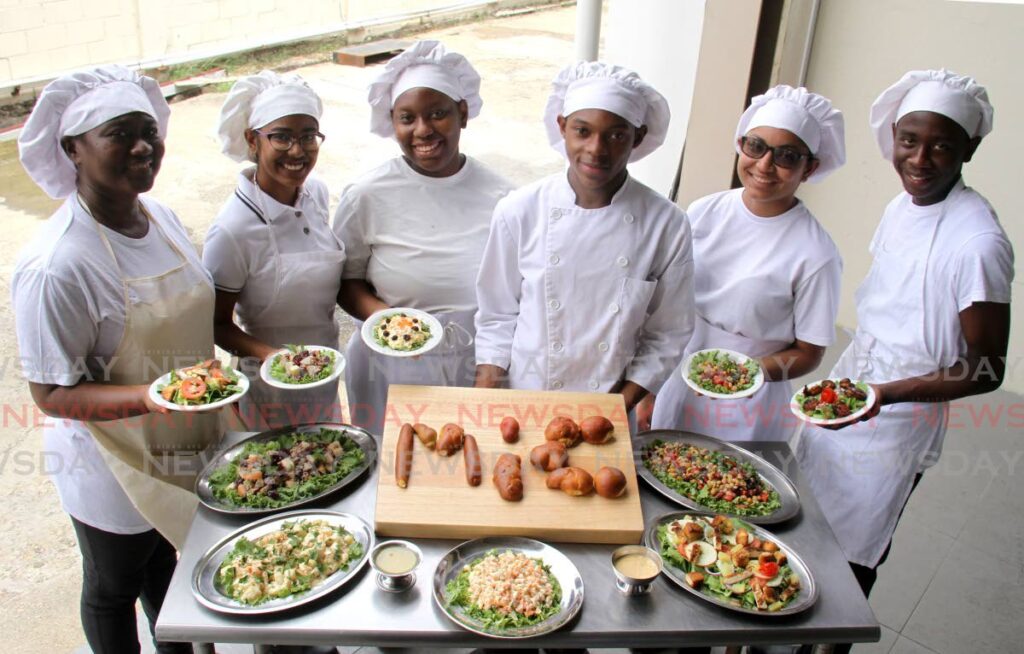
For many people cooking is just a simple life-skill that saves money.
But for the trainees of the MIC-IT's culinary arts programme, cooking goes much further than stirring pots and cutting vegetables as they craft colourful dishes that look as good as they taste.
For several trainees the programme is their first introduction to formal training on food preparation and the skills they need to work in the hospitality industry or open their own restaurants.
Speaking at the MIC-IT's Macoya training centre on Monday, a group of year one trainees told Sunday Newsday they were eager to share their creativity using food as their medium.
The group of six whose ages range from 18-44, come from different backgrounds and each have different ambitions. But their passion for food has resulted in the formation of a bond through the programme.
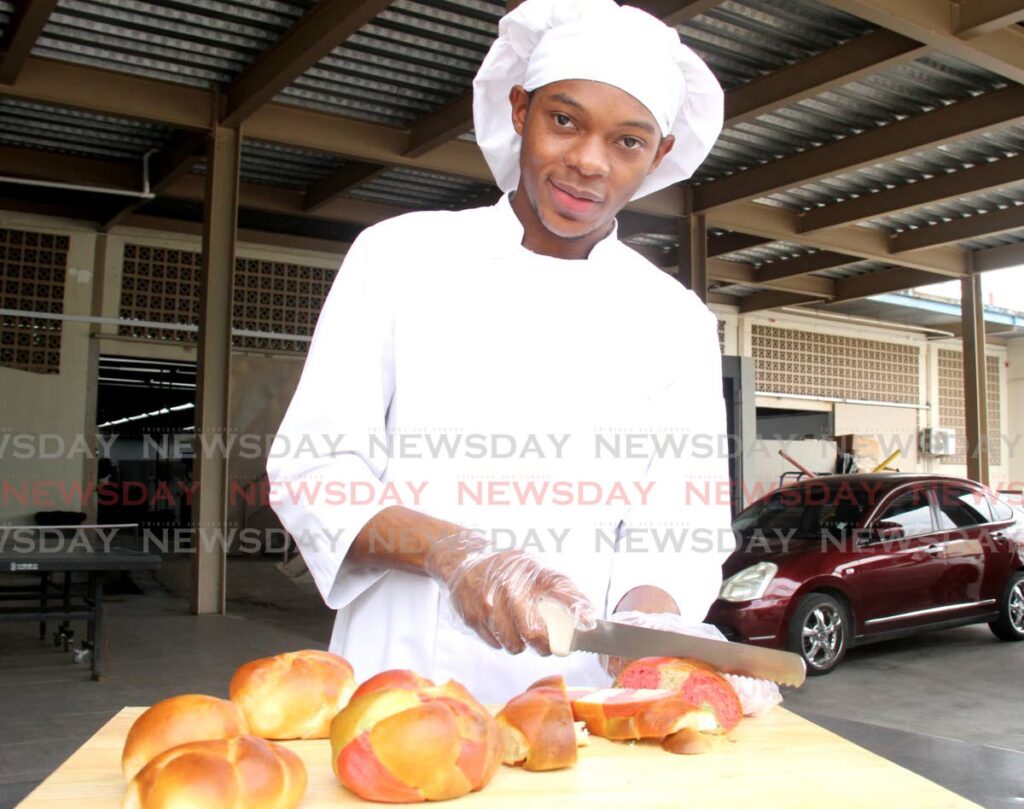
Like the other participants, Alicia Russell is optimistic the skills learned will help her start her own business.
Russell, 44, worked as a pharmacy technician but has recently switched her focus to food preparation after being diagnosed with lupus.
She says while she has been proficient in basic cooking skills before, the programme has widened her experience and skillset in different areas.
"I did some baking and stuff before but since I started the programme I have learnt a lot.
"After I complete this programme I think I want to take it to another level by operating on a full-time basis.
"I have opened a small business for myself where I do burgers and fries."
Like Russell, most of the trainees enrolled in the programme have some experience in operating small businesses on their own time and are hoping to gain additional skills on how to better manage their activities.
Instructor Keishelle Carmona-Augustine said the closure of restaurants during the pandemic last year led many people to consider starting small restaurants on a part-time basis to take advantage of the demand for fast food.
But she said while there will always be a market for tasty, convenient meals, cooking for your family is a different experience compared to cooking for sale and stresses the importance of proper techniques and financial literacy – two things the programme's curriculum covers.
"A lot of people may say they want to start selling something like chicken and chips, but they don't know the proper temperature to store the meats or the proper seasoning techniques. They may not even know how to cost the items and end up losing money. Simple things people may not even consider beforehand so all of these things helps open their eyes to the demands of owning and operating a business."
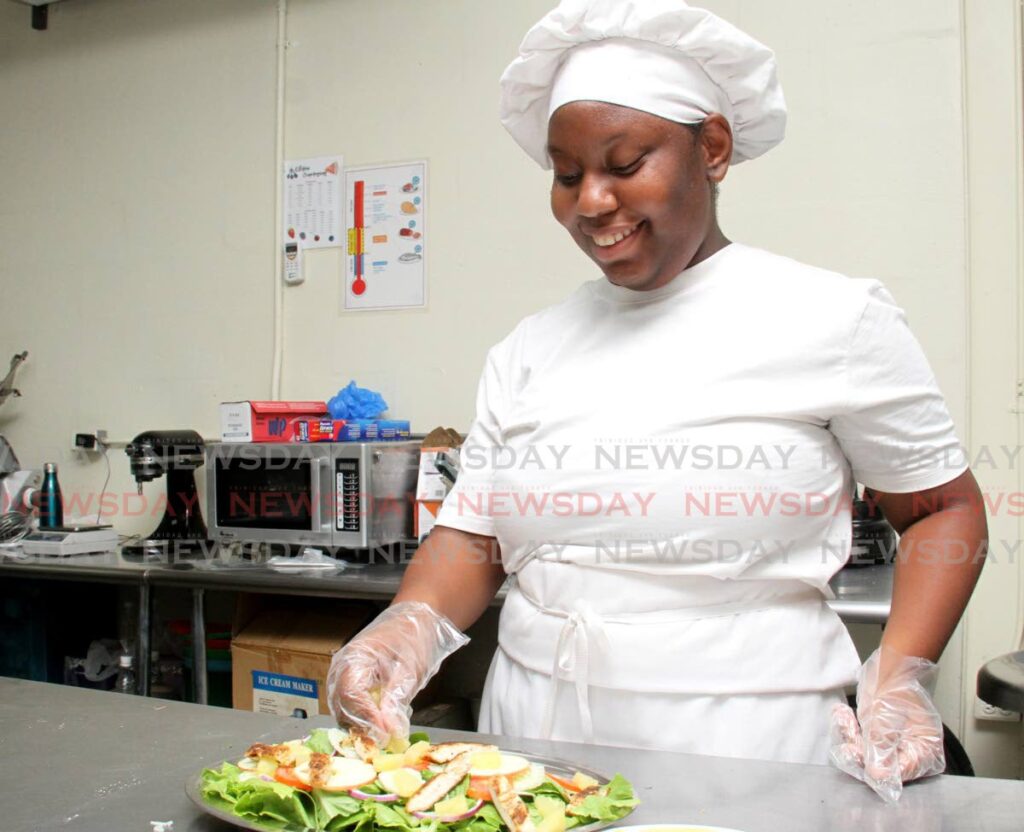
In terms of the actual cooking, Carmona-Augustine said the programme is designed to give the trainees maximum exposure to as many different styles as possible, giving them a thorough training experience from the ground up.
Trainee Alicia Matthews told Sunday Newsday while she has dabbled in cooking different items at home, the programme has enhanced her skills and her family was the first to notice.
"A lot of times I would bring stuff I made for them, especially breads and so on. They really enjoy it but I still can't beat my grandmother in baking bread," Matthews joked.
The trainees are taught everything – from the proper technique on how to knead the dough for bread to the ideal baking temperature.
But just as important as making their items delicious, trainees and their instructors place special emphasis on the presentation behind each dish.
Anyone walking into the kitchen area of the culinary arts programme is immediately bombarded with a variety of smells – from buttery rolls to savoury meats – and the colourful arrangement of every item does not go unnoticed.
From the smallest portions to large meals, the trainees are taught to make dishes that engage all the senses of their customers.
Instructor Sean Thomas said this is important as it develops competence in how to style certain dishes.
He said the intention is not only to cook food that is nutritious and tastes good, but looks good as well.
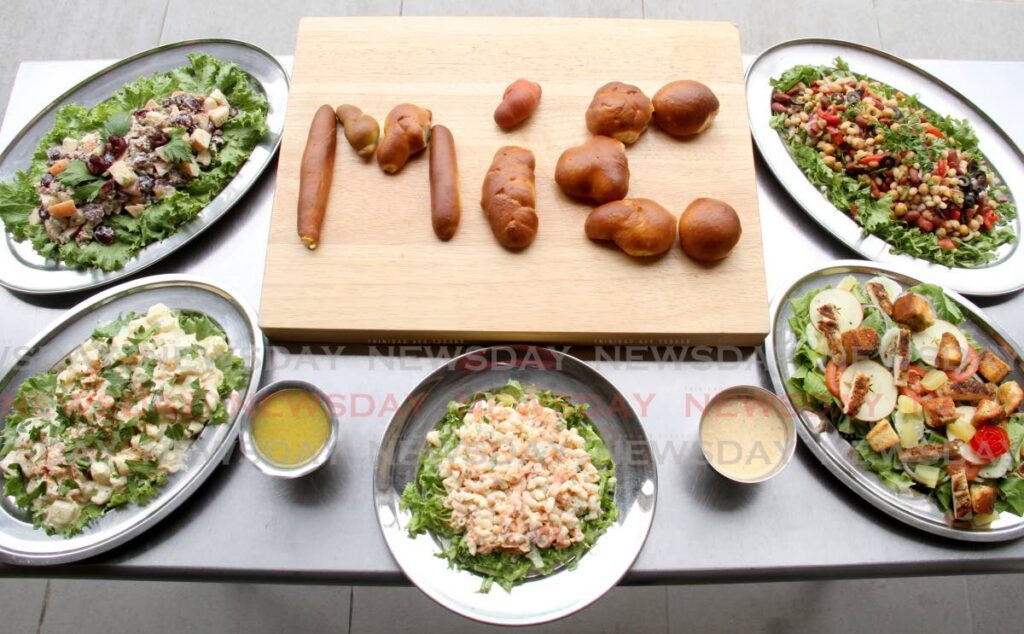
"We do the usual breads, cakes, pastries and food preparation, but we also add in additional stuff that isn't part of the programme itself.
"We do wine-making, speciality cakes, we do fruit and vegetable carving. We touch on everything. We try to fancy it up in a way so when they go out there in the restaurant industry they can be on par with anyone else who studied abroad."
He said the intention is to produce trainees who can adapt to any setting they choose to be a part of.
Trainee Omaeri Meade, 19, said he has been making full use of the practical sessions in the kitchens.
Meade, from Arouca, said relatives suggested he enrol in the programme after noticing his passion for cooking and experimenting with different foods.
He understands that some people may associate cooking as a traditionally feminine task, but he has not let the perceptions of others deter him from pursuing his passion.
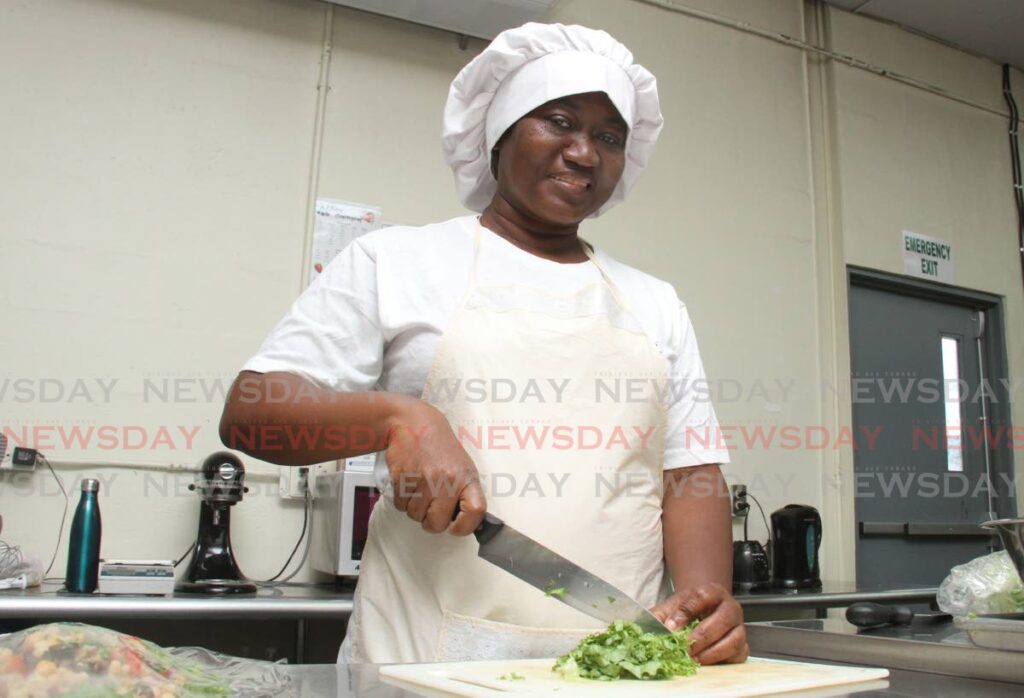
"They can say what they want, they still have to wait on their mothers to cook for them when I can do it for myself."
The only other male trainee in the year-one group, Darius Joseph, 18, said while he did not feel any pressure from his peers in being part of the programme, he encouraged other young men who may have a passion for cooking to pursue their interest regardless of other people's opinions.
"They should definitely do something related to their interest if that's what they like. A lot of my relatives are men, and they are professional cooks in the Defence Force so I don't feel any pressure. The kitchen is where I feel the most at home."
Joseph, from Laventille, said his interest in food preparation started while in secondary school and was encouraged by a family friend to receive formal training.
Another trainee Arianne Noriega said she was also encouraged by her family who recognised her interest from an early age.
Noriega, 18, said many of her relatives are also professional chefs and she hopes to follow in their footsteps after completing the programme.
While most of their assessments for the group is done on an individual basis, there are times where they will have to collaborate as a team for certain exercises.
Carmona-Augustine said these exercises include having the trainees organise a breakfast or special event within groups.
This not only tests their cooking skills but also assesses their organisational and management abilities, as they are required to cook the meals and organise decorations, invitations and a pricing scheme for the items.
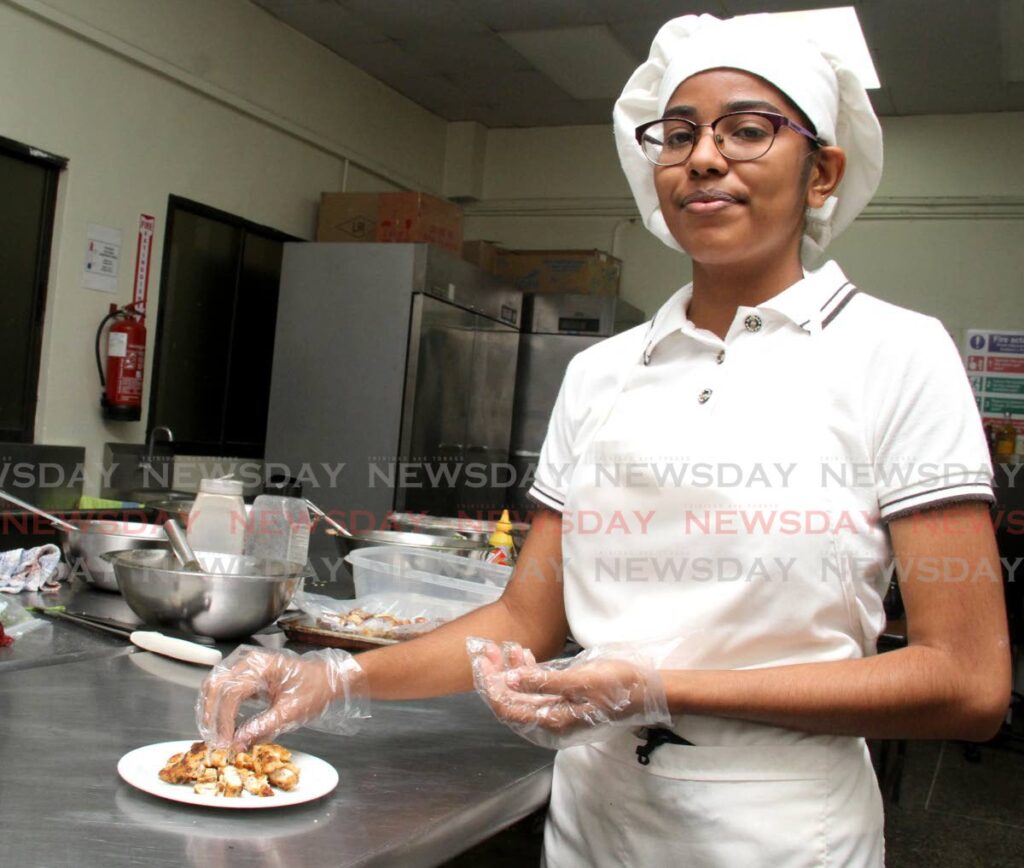
- PHOTO BY AYANNA KINSALE
"It's not only a means of assessing the trainees but it also brings them together as an exercise to build teamwork and their communication skills. A lot of these trainees are going to leave here and enter the hospitality industry or go on to start businesses of their own, so they will need to have good customer service, communication skills and a clear understanding of how to organise themselves.
"All of these things, whether at home or abroad, will be needed and we make it our job to prepare them for that."
Like their differing personalities and backgrounds, the trainees each add their own signature flair to whatever dish they create, investing a piece of themselves in anything from as simple as a salad to a full course meal.


Comments
"Good enough to eat: MIC trainees combine flavour, style in cooking"